Recently, a friend of mine, who’s a freshman, came to me and asked for advice on her dating life. She’s been thinking about starting something serious with a senior and was questioning if it was the right decision. That’s completely understandable given society’s current outlook on age gaps.
There are many factors that determine whether an individual’s relationship is based on a reasonable age gap. Many people would love to have an answer set in stone, but it all depends on what situation applies to you.
We as a society tend to draw attention to age gaps because it’s so easy to exploit them much like other differences. That’s what makes it so hard for a person to be in a relationship with whatever age gap they prefer.
A public survey of Liberty students shows that 81% of people agree that 0-2 years is an acceptable age gap for teens.
Aubrey McClelland (10) is dating a junior and her relationship has been going fine. At first her family was weirded out, but they got used to him.
“I haven’t run into any problems and I’m happy with my relationship,” McClelland said.
Most of the teens that people associate with stay within that range, but some like to rebel. A lot of teenage girls who mature early are likely to go for boys who are older, because they’re more drawn to stability and likeliness.
Research shows that girls mature faster than boys. Even in the olden days, men in their late 2os got married to girls of around 14. This was because girls would mature faster, and men would have had time to settle down and get a job to provide for his family.
Feminism recently has become more popular among society, and more independent women tend to prefer men who can match their level.
Others say that girls maturing faster than boys can be detrimental, because it can justify romantic relationships between older men and younger women, or excuse irresponsible behavior coming from men. While it can be viewed as true, we cannot change our biology that’s been ingrained into our DNA.
On the adult side of age gaps, a majority of 47% of people agreed that an adults’ age gap can fluctuate more than a teen’s should.
The survey also shows that a preponderance of 30% of people said that four years is a good age gap for adults.
“It all comes down to maturity, […] for adults it’s a little different, as the brain nears closer to fully developing its maturity level and there aren’t as many changes happening to you, it makes it easier to find a partner who truly understands you,” Micki Morris (11) said.
Considering all these propositions, following the preferences that the majority of society agrees upon is very hard, especially concerning a serious matter of love.
Some people say to follow a basic rule of thumb. Divide your age by 2, then add 7 to see if someone is too young for you to date. To determine if someone is too old for you, subtract 7 from your age, then multiply it by 2.
This is definitely a good place to start, but this type of math can be inconsistent and unreliable.
And there’s also no way we can skip out on the legalities. Basically, if both parties are of consenting age and can fully and actively consent, then there’s no problem.
This line of thinking doesn’t consider the difference in power, in the actual ability to consent between an 18-year-old and a 63-year-old.
Legally, an age of consent is ideal, but emotionally how we consent is in some ways are entirely contextual.
Alas, factoring out societal concerns and legal issues, there are many pros and cons to dating outside of the “acceptable” age gap.
“At the end of the day, it doesn’t matter as long as the relationship works,” Rathi Thiagargan (11) said.
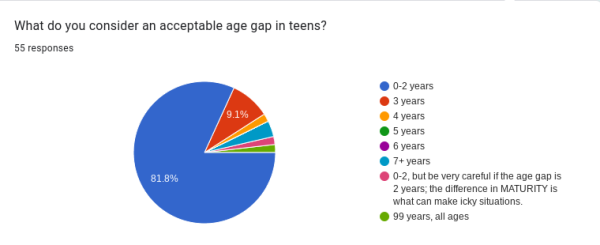
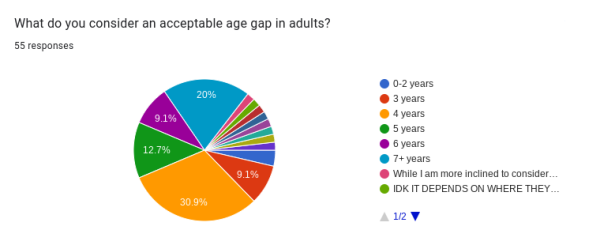
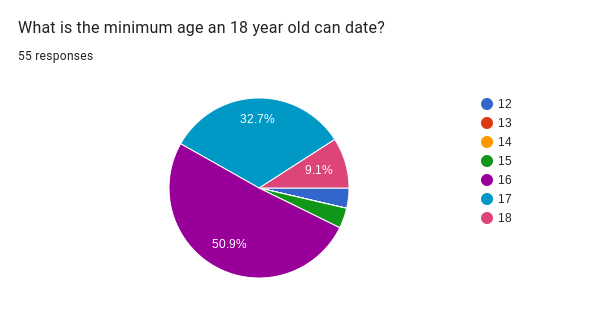
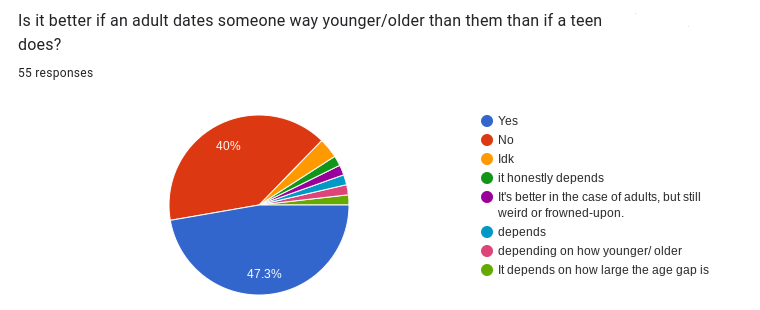



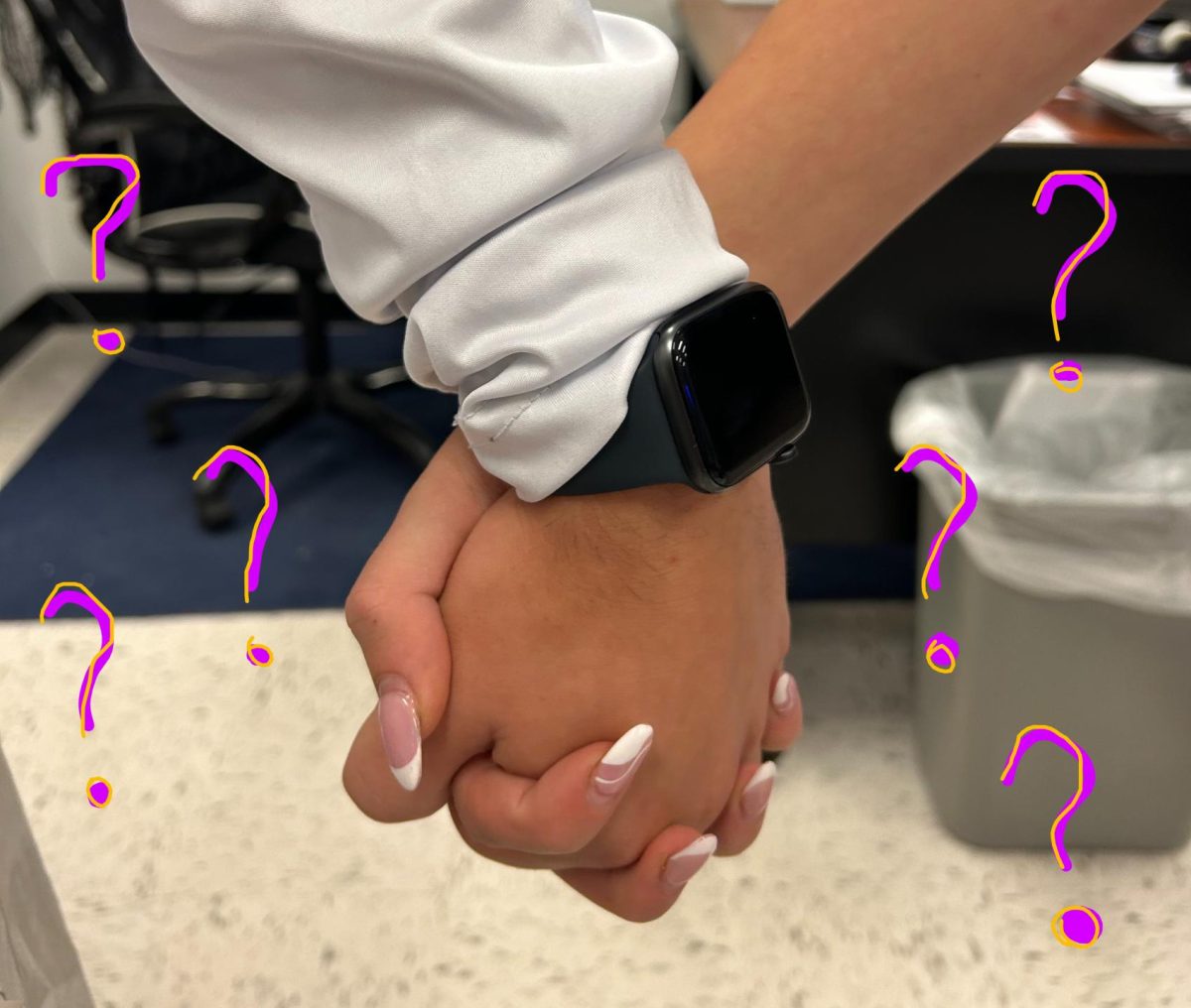



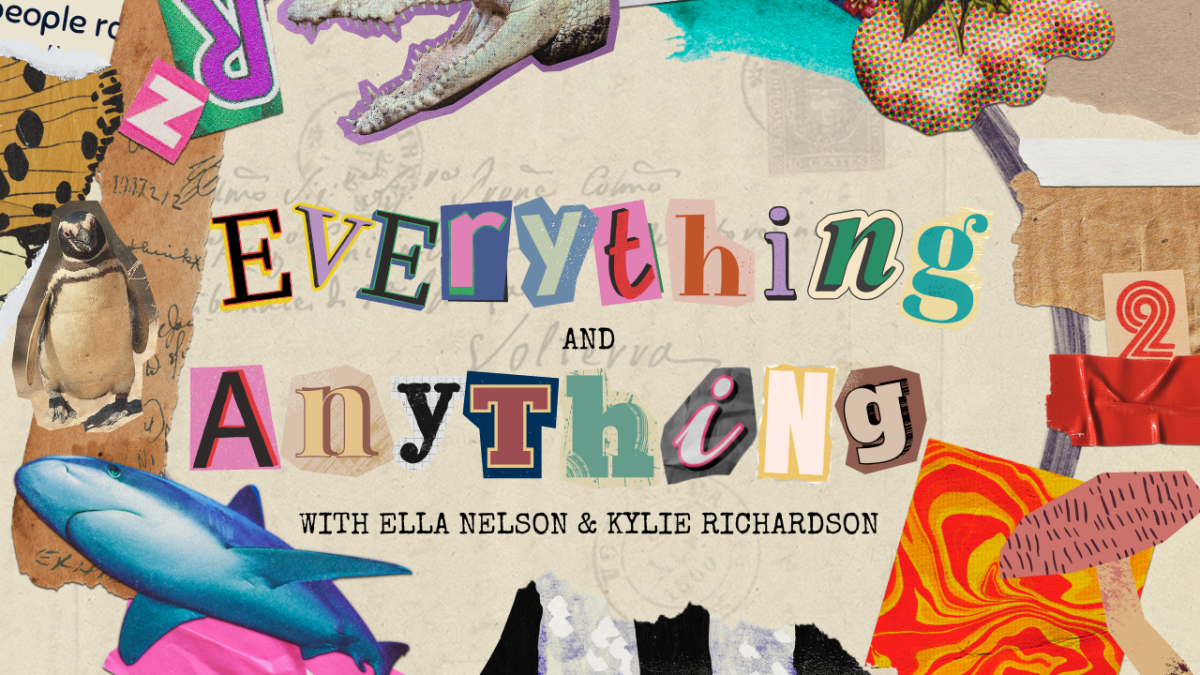





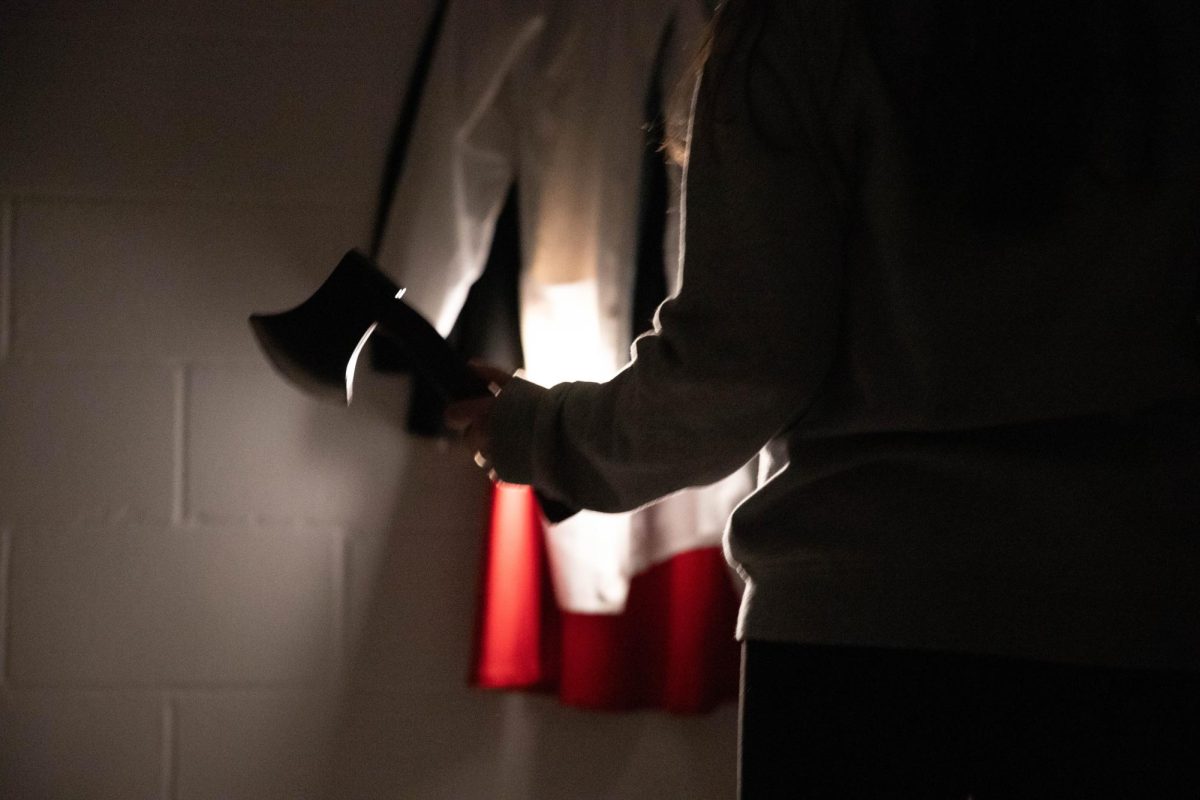
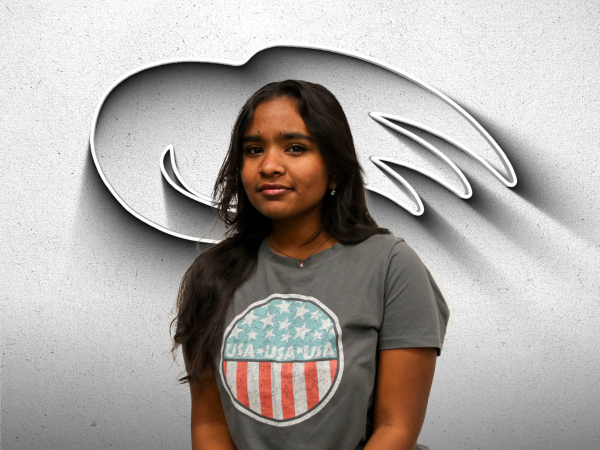
Bella | Nov 7, 2024 at 9:12 am
If it is an 18 year old and a 14 year old freshman this age gap is completely unacceptable but if it is a 17 year old senior and a 15 year old freshman the age gap can be more tolerable.